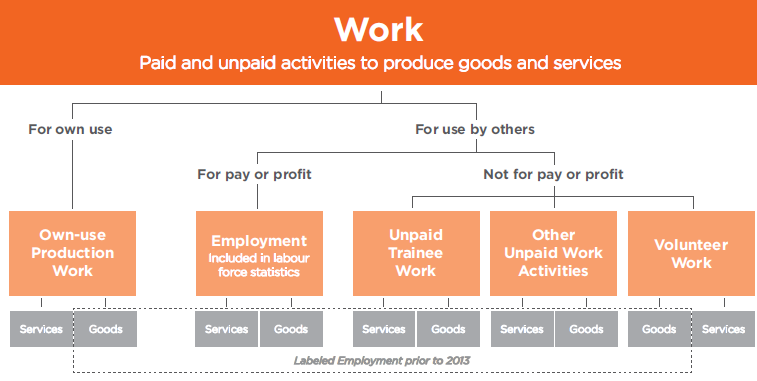Measuring women’s work
Around the world, women do all kinds of work – some paid, some unpaid. They care for children and the elderly, grow and prepare food for their families, work in offices, on farms, in factories, and on roadsides – often doing multiple tasks at once. With our partners, we seek to make women’s varied working roles visible in data systems.
We know that when it comes to women’s working lives, women face inequalities in nearly every way: in pay, job quality, asset ownership, and unpaid work. And we also know that there is value in promoting women’s economic empowerment, for women themselves and to advance development progress. To strengthen women’s economic empowerment, we need specific information on women’s paid and unpaid working lives in order to develop better strategies to improve their experiences and outcomes. In 2013, a new definition of work was agreed by the global community of labor statisticians that ensures that the measurement of unpaid work is just as pressing as paid work in employment.

The types of employment that women often have in developing countries—such as working on family farms or in family businesses for no pay; in informal roles, such as domestic workers; or on a casual or seasonal basis—are sometimes missed in traditional data collection. Unpaid care work (own use provision of services), shouldered mainly by women, is also poorly and infrequently measured; and the work that women do to grow food, fetch water, collect firewood for their families (own use production of goods) can also be overlooked.
Together with our partners, including the International Labour Organization, the World Bank, and the United Nations Statistics Division, we are working to build data systems that capture all of women’s work, focusing on key sources of data, including labor force surveys, multitopic household surveys, and time use surveys.
Learn more about what we’re doing with partners to ensure that, together, these data sources can provide a full picture of women’s working lives:
Related Content
-
Related
ResourceInvisible No More? A Methodology and Policy Review of How Time Use Surveys Measure Unpaid Work (Executive Summary)
Go to resource -
Related
ResourceValuing Women’s Unpaid Care and Household Work: The Policy Potential of Time Use Data
go to resource -
Related
ResourceMeasuring women’s paid and unpaid care work under ICLS 19
go to resource
